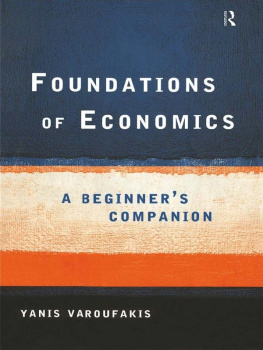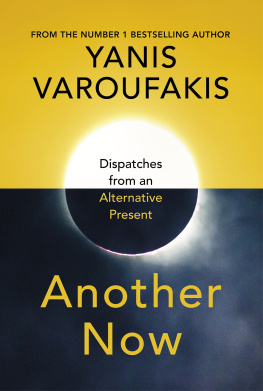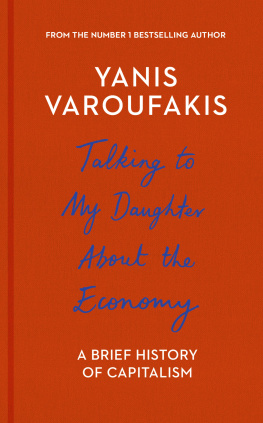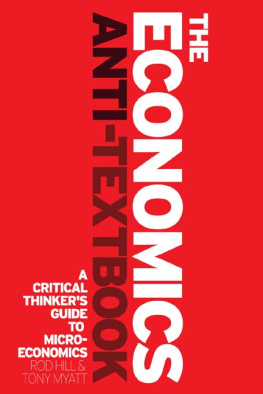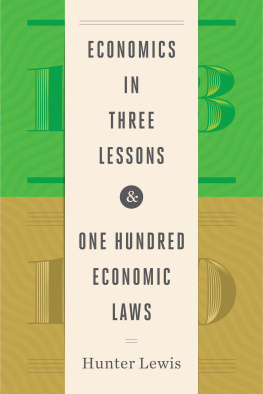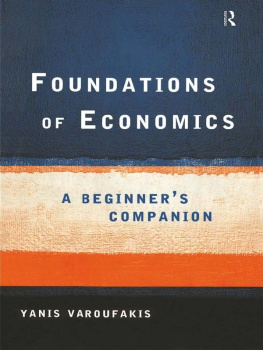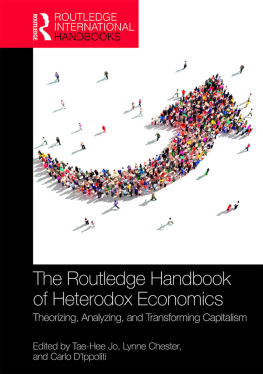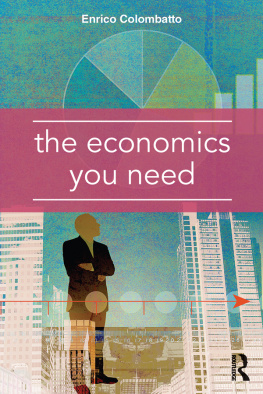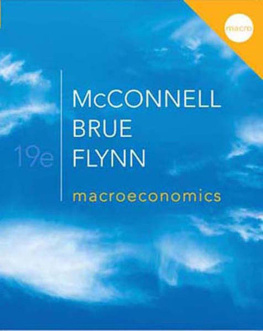Foundations of Economics
Foundations of Economics has been specially designed to complement the conventional introductory level economics textbook so that students are relieved of the monotony and austerity which is commonly associated with economics courses. All the main concepts in introductory level economics are covered, but instead of the usual presentation of model/diagram/theory, Foundations of Economics introduces each concept in three steps:
- A review of the standard material students are exposed to in conventional texts.
- An explanation of the history and evolution of these theories/ideas.
- These theories/concepts are put on trial and the question asked: Should we really believe in all this?
In this way, students are encouraged to question what they are learning and to challenge the distant assumptions and often dry theories of their teachers. This approach makes assumptions interesting by explaining what major political and philosophical prejudices they reflect. The final section in the book looks directly at anxieties which economics students often feel but might not dare to ask, such as Does economic theory really matter? or Should I be studying economics? Is it good for me? and answers them honestly, though perhaps unpredictably.
Proving that passion in economics can be an essential part of the learning process, this book will be the friend that students will turn to when in need of inspiration, when they feel their course has lost all meaning, or when they are just plain stuck. It will also be of interest to the general reader who would like to know more about economics but without the pain.
Yanis Varoufakis is Senior Lecturer in Economics at Sydney University. He is the co-author with Shaun Hargreaves Heap, of Game Theory: A Critical Introduction, also published by Routledge.
A Beginners Companion
Yanis Varoufakis
First published 1998 by Routledge
11 New Fetter Lane, London EC4P 4EE
This edition published in the Taylor & Francis e-Library, 2002.
Simultaneously published in the USA and Canada by Routledge
29 West 35th Street, New York, NY 10001
1998 Yanis Varoufakis
All rights reserved. No part of this bookmay be reprinted or reproduced orutilised in any form or by any electronic,mechanical, or other means, now knownor hereafter invented, including photocopyingand recording, or in anyinformation storage or retrieval system,without permission in writing from thepublishers.
British Library Cataloguing in PublicationData
A catalogue record for this book isavailable from the British Library
Library of Congress Cataloging in Publication Data
A catalog record for this book has beenrequested
ISBN 0-415-17891-6 (hbk)
ISBN 0-415-17892-4 (pbk)
ISBN 0-203-02890-2 Master e-book ISBN
ISBN 0-203-20646-0 (Glassbook Format)
This book is written with the conviction that the economics textbook, contrary to all evidence, contains delightful mind-teasers, philosophically exciting questions and lots of intriguing politics. It is also written in the conviction that beginners, who are usually dismissed as insufficiently sophisticated to get involved with these higher order issues, are perfectly up to the detective work necessary to bring these delights on to the surface. Additionally, I embarked on this book with the certainty that pursuing these discoveries promises not only to enliven an otherwise dull course but also to help students do well in it. Who knowsit may even inspire us, the teachers of this all-conquering but prosaic discipline, to lift our game.
And lift it we must! Open any economics textbook. These days you will find excellent graphics, numerous examples, helpful appendices, computer disks with moving curves and, naturally, sets of solved problems to help you get a handle on how economists answer the questions they pose. Indeed, todays textbook is incredibly competent at providing answers to set questions. Already publishers of economics textbooks offer web pages on the Internet which contain numerous links to material relating to the topics in each chapter; students who have bought their book are even given passwords allowing them to submit their answers to set problems electronically. Indeed the textbook has become only an entry point into a multimedia package which provides answers to given questions with astonishing competence. But here is the rub: none of this technological wizardry provides a guide as to where the questions come from, of why different questions are not being asked, of who does the asking. It works like a do-it-yourself manual taking you by the hand and illustrating the method for doing things.
Now we all know how boring manuals are. No wonder students find economics a touch too dry. However, it might be argued that if one wants to learn to do things one has to plough through the manual. That, as in physics, beginners must conquer the boring stuff first (e.g. classical mechanics) before they can discuss black holes sensibly. I do not think this is a good analogy with economics. Let me explain why.
All physicists agree on the method of mechanics. You will not, for example, find them arguing fiercely on the value of differential equations for describing the motion of fluids. Yet economists seem unable to agree on the same scale. Effectively there is no commonly agreed borderline between (1) a set of topics within which all practitioners agree (such as there is in natural science, e.g. mechanics) and (2) another set of topics (including black holes and the origin of the universe) in which they do not. In economics the set of disagreement encompasses almost all of economic life. For instance a Keynesian and a neoclassical economist do not even agree on the meaning of probability in a social setting!
The point here is that if those who teach economics find it hard to agree with one another on basic things, is it not a trifle hypocritical to use textbooks which pretend that there is a set of answers and questions which students must learn to recite? Or, equivalently, that economics students can be trained in the same way that students of chemistry can? I think it is and this book is written with a sense of shame for such hypocrisy. It is also written with passion, though I hope without rashness.
Of course there are those who think that passion gets in the way of sound reasoning; they would prefer the detached style of conventional texts. For my part I feel that taking emotion and controversy out of economics is responsible for losing a great deal of analytical power. The greatest thinkers to have tackled economics were motivated by debates so passionate that their emotions were stirred until new ways of understanding economic relations emerged. The danger is that the way we teach economics today has become so banal that the brightest are bored and leave the discipline early for greener pastures. The future generation of economics graduates runs the risk of leaving university with a large box of tools and the motivation of a gravedigger. Perhaps the time has come to give these old emotions another stir.
The challenge for this book is to be stirring while respecting pedagogical constraints. One reviewer of an early sketch of my intentions for this book warned against the danger that my approach may resemble insisting that small children taking their first steps in learning to walk should be taught the subtleties of body language at the same time. Although I recognise that principles must be well understood before being criticised (indeed there is nothing more pointless than uninformed criticism), I take a different line: learning social science is (or at least ought to be) radically different from learning how to walk. Whereas walking is best learnt mechanically, social theory is best imparted by critical thinking (accompanied of course with large doses of rigorous training). In social theory the two are parasitic on each other; rigour without critical thinking leads to bad theory while critical thinking without rigour reduces to blind moralism. The trick is to find a decent balance between the two.

